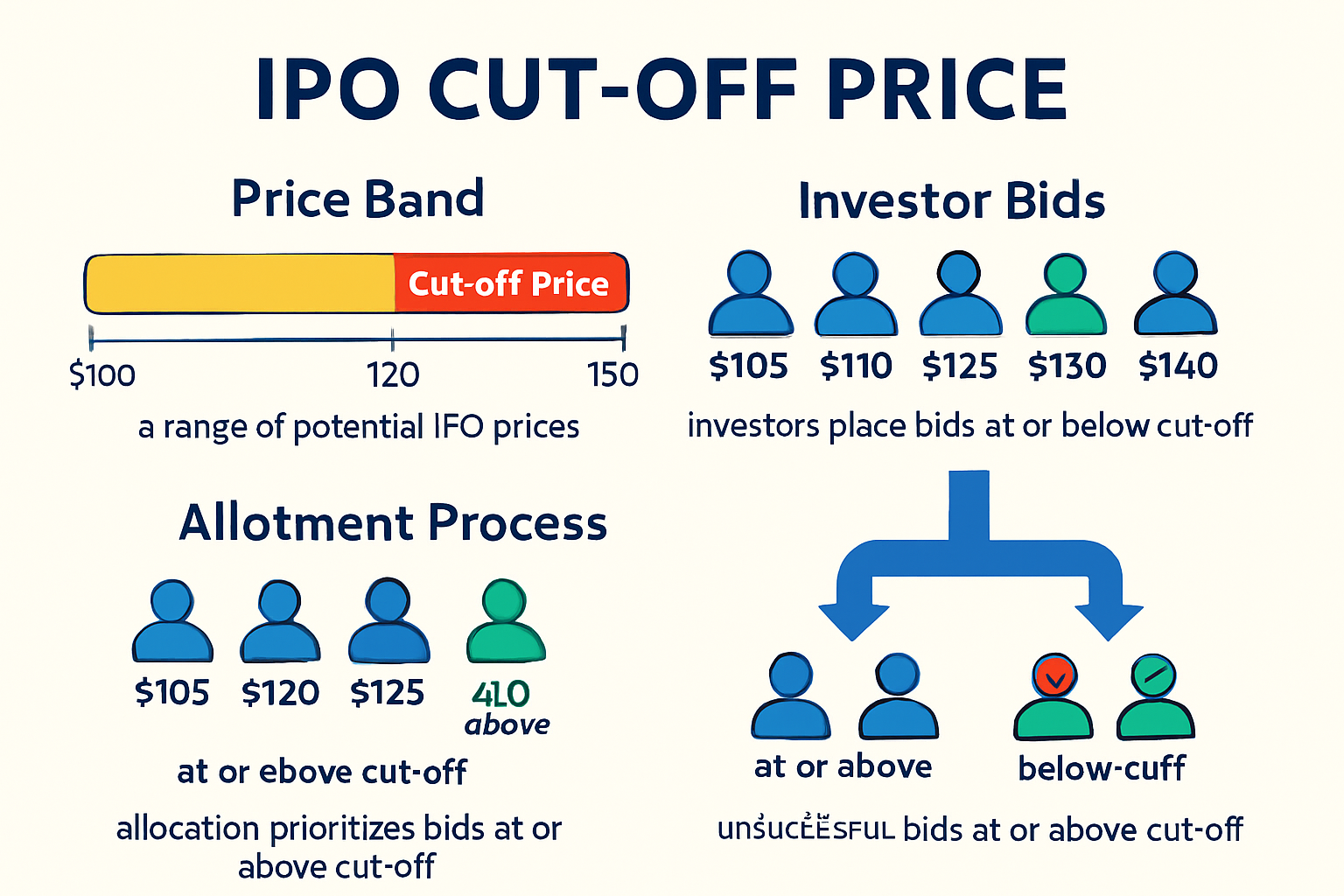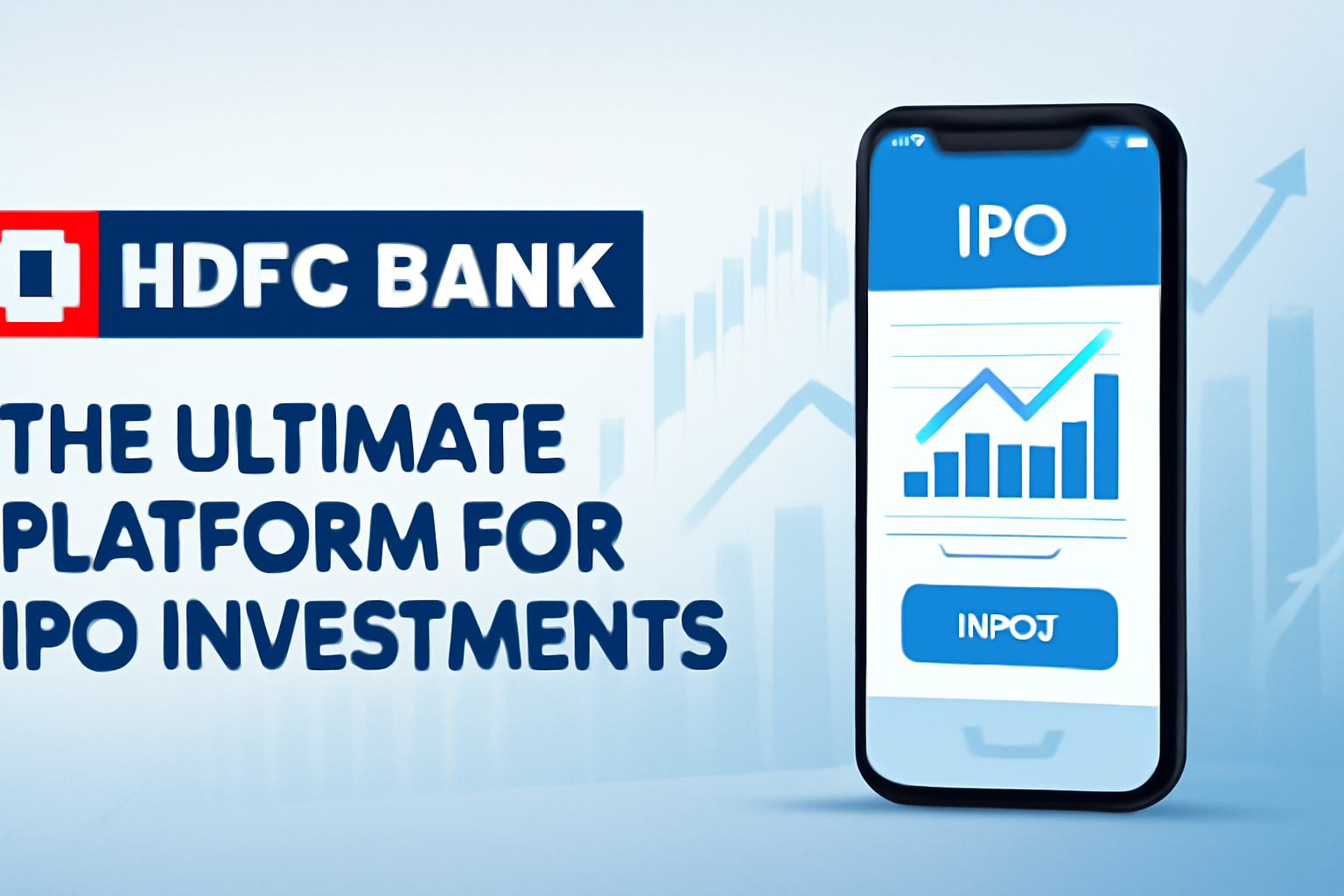What Is Cut-Off Price in IPO?
In an IPO (Initial Public Offering), the cut-off price
is the final price at which shares are allotted to investors. It is determined
after the bidding process closes and represents the price within the specified
price band at which total demand matches the number of shares offered.
When applying for an IPO under the book-building
method, investors can:
- Select
a price within the price band.
- Or
choose the cut-off price option.
Choosing the cut-off price means the investor agrees to pay
any price within the price band that is finalized by the company after demand
analysis.
How Does the Cut-Off Price Work?
Suppose a company issues shares with a price band of ₹200 to
₹210.
- If
you apply at a price of ₹205 and the final issue price (cut-off price) is
₹210, you may not get allotment because your bid was below the
cut-off.
- If
you apply at the cut-off price, you agree to pay up to ₹210 and are
eligible for allotment regardless of the final price within the band.
- If
the final price is ₹205 and you applied at the cut-off (₹210), you will
pay ₹205 and get a refund of the difference.
Why Is Cut-Off Price Important?
- It facilitates
fair price discovery: The cut-off price is based on investor demand
and market conditions.
- It
ensures fair allocation: Investors bidding at or above the cut-off
price have higher chances of getting shares.
- It
helps investors participate in the entire price band: Choosing
cut-off price shows willingness to pay the final issue price.
- It's
mostly available to retail investors; institutional investors have
to bid at specific price levels.
Tips for Investors Applying at Cut-Off Price
- Applying
at cut-off price increases chances of allotment.
- For
retail investors, choosing cut-off is a simpler option preventing
rejection due to bid price lower than final price.
- However,
applying above cut-off price can increase allotment chances but
block more funds.
- Always
consider your risk appetite and financial planning before bidding.
Conclusion
Understanding the cut-off price helps investors apply wisely
in IPOs to improve their allotment chances and avoid rejection due to lower
bids. It is a critical tool that bridges company valuation and investor demand
transparently in book-building IPOs.



